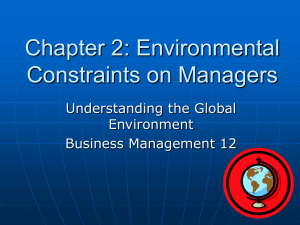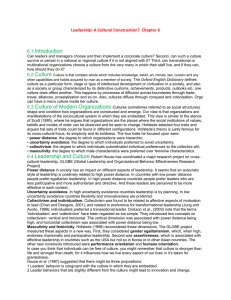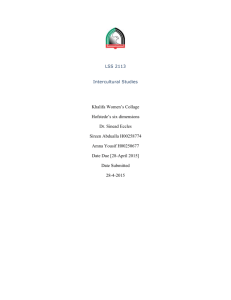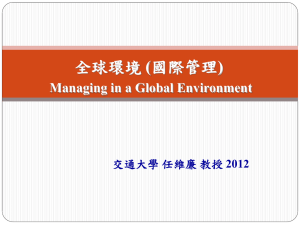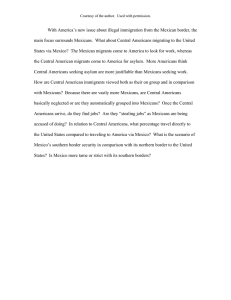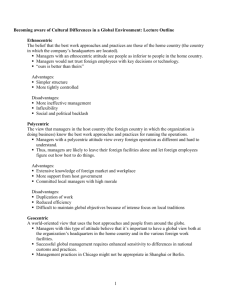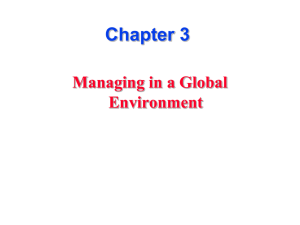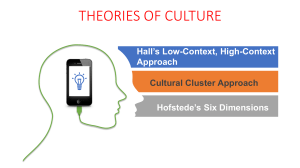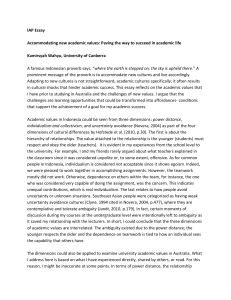Institutions matter: micro-level determinants of eParticipation
advertisement
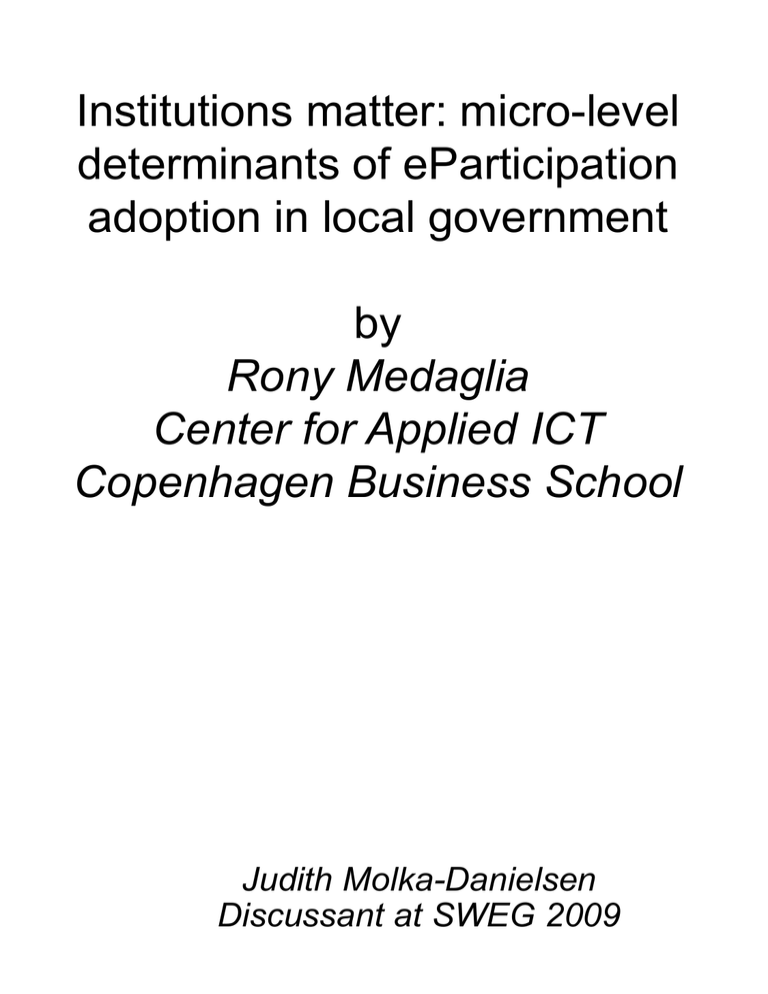
Institutions matter: micro-level determinants of eParticipation adoption in local government by Rony Medaglia Center for Applied ICT Copenhagen Business School Judith Molka-Danielsen Discussant at SWEG 2009 Look at cross-cultural differences, even though you cannot use Hofstede scores. 1. Jarvenpaa, S.L., and D.E. Leidner, "An information company in Mexico: Extending the resource-based view of the firm to a developing country context," Information Systems Research, 1998, 9:4, pp. 342361. Jarvenpaa and Leidner (1998) examine how one local firm in Mexico competes in an information (newspaper) industry against foreign competitors in an open local market. Noted within this article is the Mexican culture runs counter to the acceptance of the information industry. (They mention relevant dimensions as collectivism and uncertainty avoidance. Hofstede (1980) assigns Mexico score 70 on collectivism, and 82 on uncertainty. He assigns US score 9 on collectivism, and 46 on uncertainty. “As a collectivist (also called high context) culture (Hall 1976, Hofstede 1980)) Mexicans tend to develop extensive personal and professional networks which consequently reduce the need for detailed objective background information when decisions are made.” (p.346) The authors continue to say that Mexicans are not comfortable accepting information from sources that are not personally known. In other words, sources like government forecasts are not trusted. As high in uncertainty avoidance, Mexicans prefer structure, clear rules, and standard operating procedures, prefer short term plans, orientation towards the past and restricted information sharing (as information sharing is a “threat”). According to a resource based view of the company, the core capabilities of firm are managerial foresight, trustworthiness, and strategic flexibility. Local managers are able to effect change (make use of core capabilities) in operations because they honor the cultural and institutional traditions.
